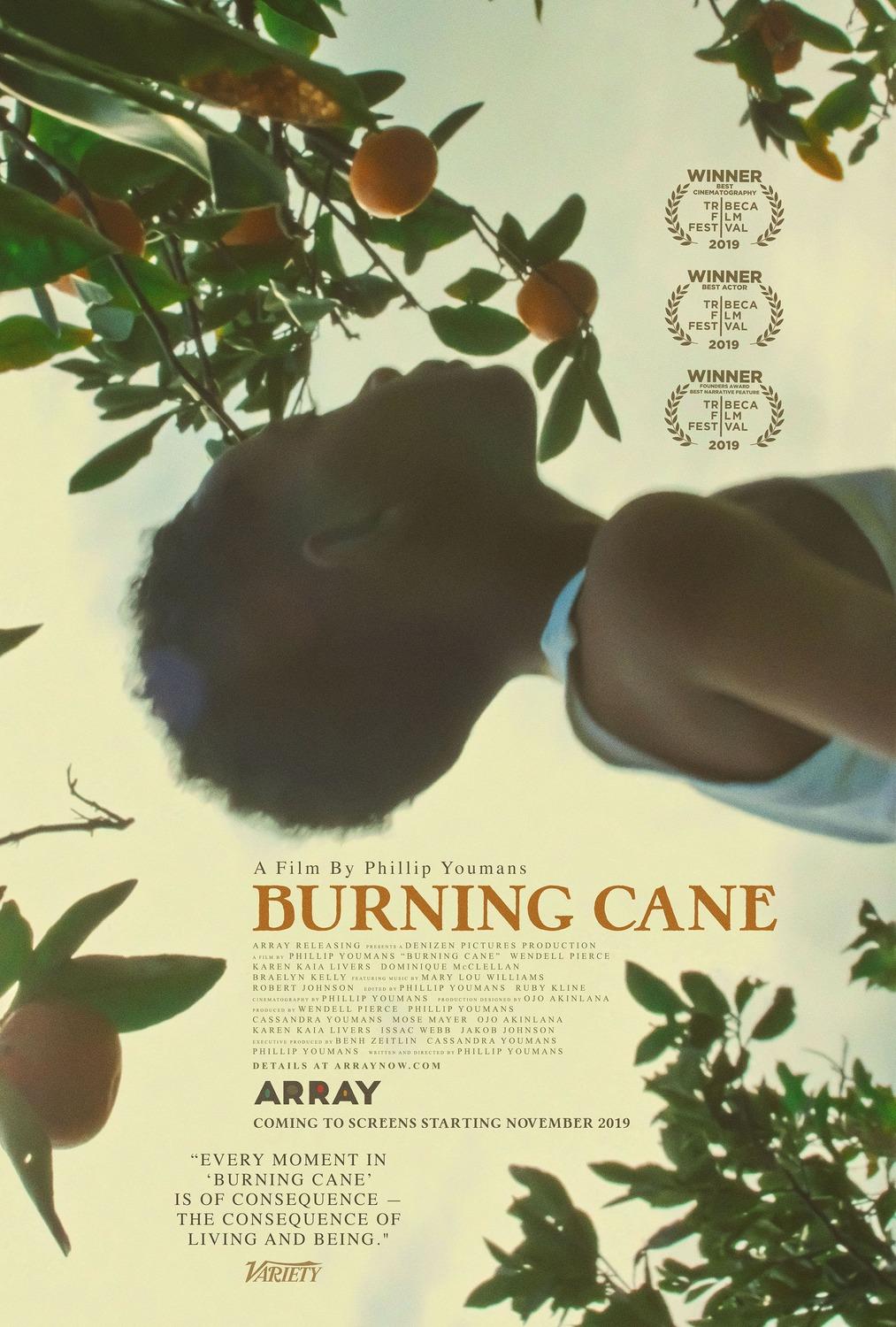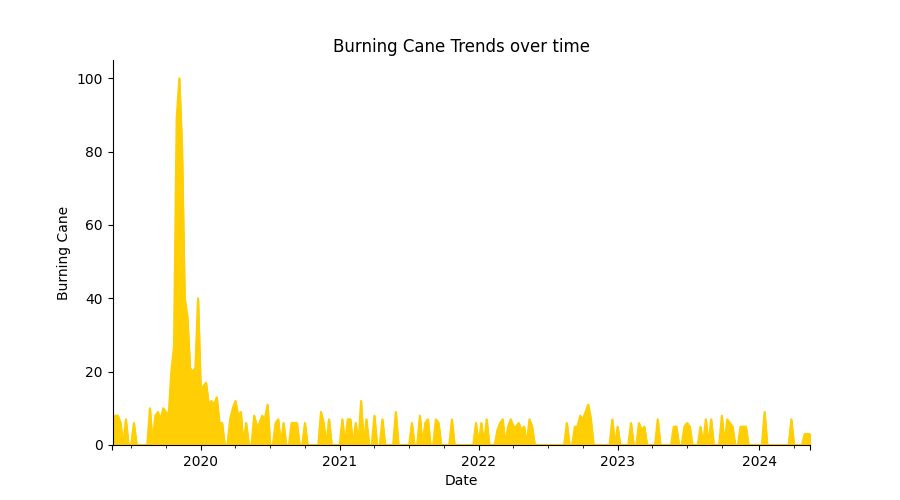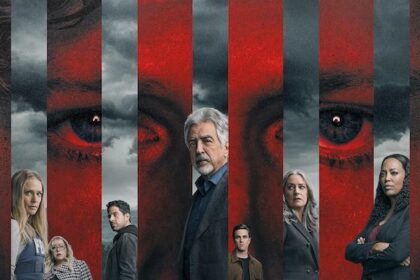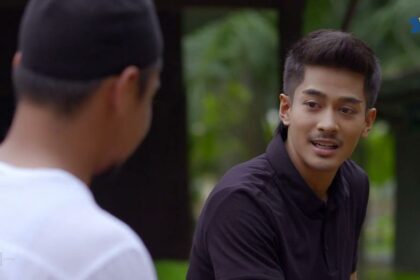
🪶 Story & Synopsis
In “Burning Cane,” directed by the young and talented Phillip Youmans, we are immersed in the rural landscapes of Louisiana, where the intricate lives of a deeply religious mother, Helen Wayne, her troubled son, and the declining pastor of her church unfold. The film delicately navigates the complexities of faith, love, and family dynamics, offering a raw and unfiltered portrayal of human emotions and struggles.
As we follow Helen Wayne’s journey, we witness her internal conflict as she grapples with her unwavering faith and her unconditional love for her son, who is battling self-destructive tendencies. Simultaneously, she witnesses the downfall of the pastor, adding another layer of emotional turmoil to her already strained existence.
Youmans, in his directorial debut, showcases a profound understanding of human nature and the intricacies of relationships within a small community. Through his minimalist approach to filmmaking, he captures the essence of everyday life in rural Louisiana, emphasizing the beauty of the surroundings and the authenticity of the characters.
“Burning Cane” stands out as a poignant reflection on the intertwining themes of faith, family, and redemption. The film’s narrative depth, coupled with the stellar performances by Wendell Pierce, Karen Kaia Livers, Dominique McClellan, and Braelyn Kelly, elevates it to a thought-provoking piece of independent cinema that resonates with viewers on a profound level.
With its accolades at the Tribeca Film Festival and its selection for the Venice Film Festival, “Burning Cane” cements Phillip Youmans as a promising director to watch, showcasing his ability to craft a compelling story that transcends flashy visuals and grandiose effects, focusing instead on the raw emotions and human experiences that define us all.
🧑 Cast & Crew
Wendell Pierce, Karen Kaia Livers, Dominique McClellan, Braelyn Kelly, Emyri Crutchfield, Cynthia Capers, Erika Woods
Movie Casting:
- Wendell Pierce as Reverend Tillman
- Karen Kaia Livers as Helen Wayne
- Dominique McClellan as Daniel Wayne
- Braelyn Kelly as Jeremiah Wayne
💬 Reviews and feedback
Lights, camera, action! Welcome to the wild world of movie reviews, where we dissect films like a surgeon but with way cooler tools—popcorn and soda. Today’s feature presentation is “Burning Cane” (2019), a film set amongst the lush cane fields of rural Louisiana. So grab your snacks and buckle up for an emotional rollercoaster ride through faith, love, and despair.
Picture this: a devout widow named Helen, played by the talented Karen Kaia Livers, navigating the delicate balance between her religious beliefs and her unconditional love for her son. As the story unfolds in the backdrop of Louisiana’s sweeping landscapes, we are drawn into a world where faith and family collide in a poignant struggle for redemption.
Now, let’s dive into the heart of this cinematic masterpiece and explore what makes “Burning Cane” a compelling watch.
Plot and Themes:
At its core, “Burning Cane” delves deep into themes of poverty, despair, and the complexities of human relationships. The narrative unfolds slowly but deliberately, painting a raw and unfiltered picture of life in rural Louisiana. Director Phillip Youmans masterfully weaves together a tapestry of emotions that leave you introspective long after the credits roll.
Acting and Characters:
Karen Kaia Livers shines as Helen, delivering a performance that tugs at your heartstrings. Her portrayal of a mother torn between duty and love is nothing short of mesmerizing. Wendell Pierce’s portrayal of a disillusioned pastor adds layers to the story, infusing it with depth and nuance. The ensemble cast breathes life into their characters, making each interaction feel authentic and poignant.
Direction and Cinematography:
Youmans’ directorial debut is nothing short of impressive. The handheld camera shots lend an intimate feel to the film, immersing you in the characters’ world. The cinematography captures the beauty and brutality of rural Louisiana with striking visuals that stay etched in your memory long after the film ends.
Score and Production Design:
The haunting score complements the somber tone of the film, evoking emotions that linger like a melancholic melody. The production design transports you to another era, with attention to detail that enhances the authenticity of the setting.
Special Effects and Editing:
While “Burning Cane” may not rely heavily on special effects, its editing is seamless and evocative. The pacing keeps you engaged throughout, allowing moments to linger for maximum impact. Each scene is crafted with precision, drawing you deeper into the characters’ struggles.
Binge-watching Tips:
- Keep tissues handy for those inevitable emotional moments.
- Watch with an open heart and mind to fully appreciate the nuances of each character’s journey.
- Reflect on your own beliefs and values as you navigate through Helen’s internal conflict.
So there you have it—the highs and lows of “Burning Cane” captured in all its raw beauty. This film may not be everyone’s cup of tea due to its slow pace, but for those willing to delve into its depths, it offers a profound cinematic experience.
And now for the moment you’ve all been waiting for—the rating! Drumroll please… I give “Burning Cane” a solid 8/10 for its powerful performances, evocative storytelling, and immersive visuals that transport you to another world.
In conclusion,
“Burning Cane” isn’t just a movie; it’s an emotional journey that challenges your perceptions and stirs your soul. So grab your popcorn (and maybe some tissues) because this film will take you on a ride like no other—a ride worth experiencing.
Remember: In the realm of cinema magic, sometimes it’s not about what we see on screen but how it makes us feel off-screen that truly matters.
Lights out!
| Pros | Cons |
|---|---|
| Strong performances by Wendell Pierce and Karen Kaia Livers | Very slow pacing |
| Realistic portrayal of poverty and despair in rural Louisiana | Lacks entertainment value |
| Deep exploration of faith and family dynamics | Minimal substance in the storytelling |
| Unique cinematography style adds to the film’s atmosphere | Challenging subject matter might not appeal to all viewers |
Feedback
-
Burning Cane - Wikipedia
77 minutes Country United States Language English Burning Caneis a 2019 American drama film written and directed by Phillip Youmans in his feature directorial debut. The film stars Wendell Pierce, Karen Kaia Livers, Dominique McClellan and Braelyn Kelly. Set in rural Louisiana, we follow Helen Wayne, a deeply religious mother, as she tries to mend both her self-destructive son and the alcoholic pastor of her church. The film was released on October 25, 2019, by Array Releasing.
-
Burning Cane movie review & film summary (2019) | Roger Ebert
All the programs viewed on Daniel’s archaic television set, including the porn tape, are relics from the distant past, suggesting that this Louisiana town has become lodged in an outdated era, stubbornly refusing to progress into the modern age. The indoctrination of children into drug use, as witnessed in the Flintstones’ ad for Winston cigarettes (amusingly recounted by Helen), is carried out by Daniel when he coerces his young son, Jeremiah (Braelyn Kelly), into gulping down his latest alcoholic beverage. His efforts are all the more seductive when accompanied by Robert Johnson’s catchy 1937 single, “They’re Red Hot,” one of many tunes that make this film as much a pleasure for the ears as it is for the eyes. The stirring gospel numbers performed by the Mount Calvary Missionary Baptist Church convey the power of communal spaces where a sense of divine unity can be brought to life by its impassioned participants. In one of the film’s best scenes, Helen drives the inebriated pastor home after he’s found unconscious, parked on the side of the road in front of slave quarters preserved for the ages in Thibodaux. Passing street lights resemble golden moons as Helen—her face illuminated by the glow of her cigarette—embodies a guiding light in the darkness. On the soundtrack is a mesmerizing excerpt from Mary Lou Williams’ “Black Christ of the Andes,” a 1964 choral epic about St. Martin de Porres, the healer who dedicated his life to the poor. Helen dearly desires to be a healer, yet there’s only so much she can do once the vultures start circling—and yes, singing—in the final act.
-
Burning Cane (2019) - IMDb
SPONSOREDAmongst the cane fields of rural Louisiana, an aging mother struggles between her religious convictions and the love of her son.Amongst the cane fields of rural Louisiana, an aging mother struggles between her religious convictions and the love of her son.Amongst the cane fields of rural Louisiana, an aging mother struggles between her religious convictions and the love of her son.
- Awards
- 4 wins & 17 nominations
SPONSOREDSPONSORED
- Director
- Writer
- All cast & crew
- Production, box office & more at IMDbPro
Featured reviewBurning Cane – A Study in Character
- Awards
-
Burning Cane | Rotten Tomatoes
Burning Caneis a compelling look at weighty themes — and a remarkably assured debut from an impressively talented young filmmaker.
Burning CaneWhat to KnowCritics ReviewsAudience ReviewsCast & Crew
Phillip Michael YoumansDirectorWendell PierceReverend TillmanKaren Kaia LiversHelen WayneDominique McClellanDaniel WayneBraelyn KellyJeremiah WayneCynthia CapersMarsha Bland
⚠️ Explanation (Spoiler)
In the movie “Burning Cane,” directed by Phillip Youmans, viewers are taken on a poignant journey through the lives of three generations of the Wayne family in rural Louisiana. The film delves into themes of religion, family dynamics, addiction, and the struggle for redemption.
The story revolves around Helen Wayne, a devoutly religious widow played by Karen Kaia Livers, who is trying to navigate the challenges posed by her self-destructive son (Dominique McClellan) and the alcoholic pastor of her church. The character of Helen is portrayed as a strong and resilient woman who is grappling with her faith and the complexities of her family situation.
One of the central figures in the film is Jeremiah, Helen’s grandson played by Braelyn Kelly. Jeremiah’s character serves as a lens through which the audience witnesses the impact of addiction and religious fervor on a young, impressionable mind. The intergenerational dynamics within the Wayne family provide a rich backdrop for exploring the complexities of faith, morality, and the struggle for personal salvation.
Throughout the movie, viewers are confronted with the harsh realities of life in rural Louisiana, where poverty, addiction, and deeply ingrained religious beliefs intersect to create a challenging environment for the characters. The film skillfully navigates these themes, offering a nuanced portrayal of the characters’ inner struggles and external conflicts.
One of the standout scenes in “Burning Cane” involves Helen driving the inebriated pastor home, highlighting the juxtaposition of faith and human frailty. The film’s visual storytelling, with street lights resembling golden moons and Helen’s face illuminated by the glow of her cigarette, creates a haunting and evocative atmosphere that underscores the characters’ emotional turmoil.
As the narrative unfolds, viewers are drawn into a world where the line between sin and redemption blurs, and where characters must confront their own demons in order to find peace and understanding. The film’s exploration of faith, family, and the search for meaning resonates deeply with audiences, inviting reflection on the complexities of human nature and the enduring power of belief.
Overall, “Burning Cane” is a powerful and thought-provoking film that offers a compelling portrait of a family grappling with faith, addiction, and the quest for redemption. Phillip Youmans’ directorial debut shines a light on the intricacies of human relationships and the enduring influence of religion in shaping individual destinies.
👪 Parents Guide & Age Rating
TV-MA
Age Rating:
Burning Cane is rated R for mature themes, including substance abuse, religious content, and some language.
Parental Guide:
Parents should be aware that Burning Cane contains mature themes that may not be suitable for young viewers. The movie explores issues such as substance abuse, religious convictions, and family dynamics in a thought-provoking manner. There are scenes depicting alcohol consumption, discussions of faith, and some strong language used throughout the film.
Due to the heavy themes and mature content, it is recommended for viewers who are at least 17 years old or older. Parents are advised to preview the movie first and decide if it aligns with their family values and if they deem it appropriate for their teenagers.
📺 Streaming and where to watch
| streaming service | extra information |
|---|---|
| Netflix | Burning Cane is not found on Netflix. |
| Disney+ | Burning Cane is not found on Disney+. |
| Hulu | Burning Cane is not found on Hulu. |
| Amazon Prime Video | Burning Cane is not found on Amazon Prime Video. |
| HBO Max | Burning Cane is not found on HBO Max. |
| Peacock | Burning Cane is not found on Peacock. |
❝ Quotes and Cult
In one of the film's best scenes, Helen drives the inebriated pastor home after he's found unconscious, parked on the side of the road in front of slave quarters preserved for the ages in Thibodaux. Passing street lights resemble golden moons as Helen—her face illuminated by the glow of her cigarette—embodies a guiding light in the ...
Few 19-year-old directors get a movie into a major film festival; even fewer come away with acclaim and distributions for their feature. But Philip Youmans pulled it off with Burning Cane, a ...
Films mentioning Southern and Black usually engender assumptions of slavery or racism, as though the Black experience ended in 1865. But those elements do not define Phillip Youmans' incredible dark feature debut "Burning Cane," which grapples with issues of toxic masculinity, addiction, faith, and religion in a Southern Black Baptist church community.
For the time has come for judgment to begin with the household of God… I Peter 4:17a.
Few 19-year-old directors get a movie into a major film festival; even fewer come away with acclaim and distributions for their feature. But Philip Youmans pulled it off with Burning Cane, a stunning, bleak, intimate portrait of life in a southern black Baptist community — a movie he shot in his native Louisiana while still in high school.
I first wrote a short film called The Glory. I wanted to have a conversation about my upbringing in the church. I was raised in a Baptist church, and by [the time I was writing the short film] it was a very, very, very relevant conversation for me, specifically because I’d been going in and out of my God-fearing times, for lack of better words. I’ve been questioning my faith for a while. I was having a conversation with my own faith, and then also wanting to put that on a set and make something.Initially I brought that short film to my professor at the New Orleans Center for Creative Arts, Isaac Webb. He was the first person who told me that I could make it a feature. That was an encouraging thing for me, because Mr. Webb had already made a feature, and he believed it was possible for me. He’s an amazing dude that I think is really, really about promoting the work of the students in an unselfish way. He has the best intentions for his students.So when he told me that it felt like there was a real possibility there, I started to go through the motions of what it meant to be prepping for the feature — trying to raise money, expanding it to the feature length, et cetera.
My producer Mose Mayer and I started an Indiegogo. I set aside all of my savings at that point for the film. We never really had a ton of flexible funding in production — we had barely enough, and the rest of it we had to account for through favors.To me, the production process was defined by running through script revision, reading through actors, consolidating that path. This was moving at such a quick pace, because it was kind of a now-or-never scenario. In truth, if the bulk of principal photography had to move into my senior year, then I think it would have been even less likely that the movie would come to fruition. Because getting people to buy in for a consistent number of weekends is, at least in my eyes, logistically more difficult than getting them to consolidate a chunk of time in the summer. Especially because most of my crew were also students — high school students — and that did matter in terms of the available time that we would have.After I realized I wanted to make the feature, I went to my producer Mose Mayer’s house. He was sitting by the pool — I remember it so vividly — and we were talking about what it would mean to really dig in and make a feature. It came to, We’re going to do this. We’re going to go full into it. And from that point on, we were running through the traditional pre-production, without the resources that are traditionally allocated to that stage of production.
Definitely the second one. You know how you make a film, but you never know if anyone’s going to see it, let alone if anyone’s going to resonate with it? Straight up. I think that it gave us a certain grit that probably wouldn’t have had.I think it’s so true. And it’s good to have to rely on the community, on people’s good will. It builds so much heart and grit into a project inherently, no matter what you’re shooting.
🤖Burning Cane Reddit Talks
Burning (2018)
Overview:
- Burning is a 2018 South Korean mystery drama film directed by Lee Chang-dong, starring Yoo Ah-in, Steven Yeun, and Jeon Jong-seo.
- The film follows the story of Jong-su (Yoo Ah-in), a young man who encounters a mysterious woman named Hae-mi (Jeon Jong-seo) while working on his father’s farm. He becomes infatuated with her, but she soon disappears. Jong-su begins to suspect that Hae-mi’s disappearance is connected to her wealthy boyfriend, Ben (Steven Yeun).
Discussion Points:
1. Class and Gender Oppression:
- Many viewers have interpreted Burning as a postmodernist film that explores the oppression of capitalist Korean society through class and gender.
- The film’s depiction of Hae-mi as a poor, vulnerable woman who is exploited by the wealthy Ben highlights the power dynamics between men and women in Korean society.
- Jong-su’s own struggles to find his place in society reflect the challenges faced by many young people in South Korea.
2. Ambiguity and Interpretation:
- Burning is a deliberately ambiguous film that leaves many questions unanswered.
- The film’s ending, in particular, has been the subject of much debate. Some viewers believe that Ben killed Hae-mi, while others believe that he did not.
- The film’s ambiguity allows viewers to interpret it in their own way, which has led to a wide range of discussions and theories.
3. Symbolism and Metaphor:
- Burning is a film that is rich in symbolism and metaphor.
- The film’s title, for example, can be interpreted in a number of ways, including as a reference to the burning of Hae-mi’s greenhouse, the destruction of Jong-su’s hopes and dreams, or the violence that is simmering beneath the surface of Korean society.
- The film also features a number of other symbols, such as the cat, the dog, and the burning field, which have been interpreted in a variety of ways.
4. Performances and Cinematography:
- The performances of Yoo Ah-in, Steven Yeun, and Jeon Jong-seo have been praised by critics.
- The film’s cinematography, which captures the beauty of the Korean countryside, has also been praised.
5. Social and Political Commentary:
- Burning has been praised for its social and political commentary.
- The film’s exploration of class and gender inequality, as well as its depiction of the alienation and disillusionment felt by many young people in South Korea, has resonated with many viewers.
Overall:
Burning is a complex and challenging film that has sparked a wide range of discussions and theories. The film’s ambiguity, symbolism, and social commentary have made it a popular subject of debate and analysis.
Top discussions
- https://www.reddit.com/r/movies/comments/dv3nbs/burning_cane_2019_netflix_discussion/
- https://www.reddit.com/r/movies/comments/bkf9s7/19yearold_phillip_youmans_burning_cane_wins_best/
- https://www.reddit.com/r/movies/comments/dcktgv/new_official_poster_for_the_film_burning_cane/
- https://www.reddit.com/r/TrueFilm/comments/vbouzw/is_burning_2018_really_that_ambiguous/
- https://www.reddit.com/r/horror/comments/llfkjt/faces_of_deathtraces_of_deathmondo_cane/
❓ Frequently Asked Questions
What is the plot of Burning Cane?
Burning Cane is set amongst the cane fields of rural Louisiana, following an aging mother torn between her religious convictions and the love for her son. The movie explores her struggles with her self-destructive son and an alcoholic pastor.
Who are the main cast members of Burning Cane?
The main cast of Burning Cane includes Wendell Pierce as Reverend Tillman, Karen Kaia Livers as Helen Wayne, Dominique McClellan as Daniel Wayne, and Braelyn Kelly as Jeremiah Wayne.
What is the overall theme of Burning Cane?
Burning Cane delves into themes of faith, domestic violence, self-destructiveness, and the challenges of reconciling deeply-held beliefs with real-life struggles in a small Louisiana town.
Where can I watch Burning Cane online?
Burning Cane can be streamed online on various platforms. To find out where to watch this movie among different streaming services, you can check out options such as Netflix, Hulu, Prime Video, and more.
How was Burning Cane received by critics?
Reviews of Burning Cane have been mixed, with some praising its realistic portrayal of challenging themes while others found it lacking substance. The movie offers a raw and unfiltered look at black protestant life in a rural setting.
Who directed Burning Cane?
Burning Cane was directed by Phillip Youmans, who crafted a bold and compelling narrative inspired by his upbringing in the Southern Baptist church. The movie offers an authentic portrayal of life in rural Louisiana.
🔀 Recommended Movie and TV Show
Here is a list of movies similar to “Burning Cane” (2019):
- Beasts of the Southern Wild: A young girl living in a Louisiana bayou community faces various challenges as she tries to make sense of the world.
- Mud: Two boys encounter a fugitive and form a pact to help him evade the bounty hunters on his trail.
- Winter’s Bone: A young girl in the Ozarks goes on a quest to find her missing father while facing the harsh realities of her community.
- Leave No Trace: A father and daughter living off the grid in a nature reserve are forced to re-enter society, challenging their bond.
- Sound of Metal: A heavy metal drummer’s life is upended when he begins to lose his hearing, leading him on a journey of self-discovery.
- First Reformed: A pastor spirals into a crisis of faith while dealing with environmental concerns and personal demons.
- Wendy and Lucy: A woman and her dog face hardships while traveling to find work, testing their loyalty to each other.
- Take Shelter: A man becomes obsessed with building a storm shelter as he experiences apocalyptic visions, straining his relationships.
- Wildlife: A teenage boy witnesses the breakdown of his parents’ marriage as his mother seeks independence in 1960s Montana.
Wallpapers & Media
🔥 Audience Trends









